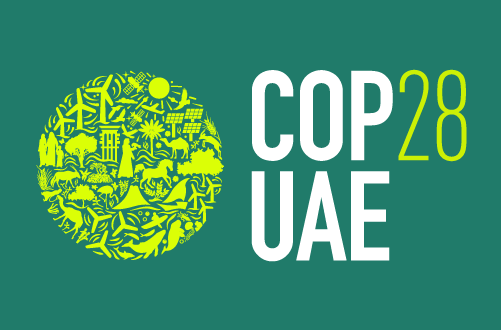COP28 FINALE: THE COP OF OILMEN SHOWS THE WAY OUT OF FOSSILS, TOWARDS NET ZERO BY 2050
Dubai’s COP28 introduces for the first time in the history of climate conferences under the UNFCCC a clear and explicit mention of the urgency to move away from (all) fossil fuels at a global level. Starting the work on the exit, accelerating the “transitioning away” efforts by 2030 (so over the next five years), with the aim of reaching net zero emissions globally by 2050, in keeping with science. The compromise arrived on a new expression, outside the phase-out versus phase-down mental barrier, as we actually expected.
This is the comment of Serena Giacomin, President of the Italian Climate Network: “There are still two speeds, a gap that is still very clear between science and politics. Of course, we should walk quickly without delay, applying the extensive knowledge that science has offered us with explicit evidence for decades now. But, if from a scientific point of view dissatisfaction and concern remain, from a political point of view, COP28 takes a very important step: the explicit mention approved by almost 200 Countries of the world to fossil fuels and the urgent need for abandoning their use by everybody. This establishes a commitment approved on paper to the transition by large emitting Countries, as well as by the vulnerable and developing ones more determined to act. As the Italian Climate Network, as a civil society movement, we will take this opportunity to carry forward climate action with even more determination and resolution so that the two speeds become one as soon as possible.”
What follows is our detailed analysis of the language of these decisions and the importance of the words used, more or less imposing, more or less deliberately detailed. However, we cannot fail to strongly underline that a wording of this type on fossil fuels was simply unthinkable two years ago in Glasgow, when the world focused its attention on the rapid phase-out from coal alone, a terminology which at that time did not make it into the final text. Here, however, it refers to all fossil sources, not just coal. The bar is now much higher. Thanks to the pressure of civil society, thanks to the disasters that are now increasingly frequent and evident to politics.
Yet, the global context should not be favorable: wars involving members of the UN Security Council, strong political splits on the Middle East issue, the next COP in 2024 in a country, Azerbaijan, which recently came out of a war with its neighbor.
Yet, the decision on fossil fuels comes from where we least expected it: from the COP in Dubai, from the “COP of oilmen“.
A very strong signal, which relaunches the process. The President of COP28, Al Jaber, declared in the closing plenary: “we have helped restore faith and trust in multilateralism”. Beyond the rhetoric, it is objectively true: this agreement in Dubai manages, with a language that is not clearly imposing – and through many compromises (for example, on the global emissions peak in 2025) – to keep in the game the OPEC Countries, Saudi Arabia, Russia, Iran, who like all the others did not object (therefore approved) the idea of preparing to exit from fossil fuels in the next five years. Again, politically unthinkable until two years ago.
While noticing with appreciation – as does CAN International, the AOSIS alliance of Island States, many civil society actors – the historic step forward on language about fossils and the progress on other issues such as the loss and damage finance, we must highlight in any case the perhaps inevitable price that led to this final compromise. All negotiations on new carbon markets under Article 6 are postponed to 2024, references to peak emissions in 2025 have been removed, there is almost no significant decision on climate finance except for loss and damage. And again: the persistence of use of a very mild – too soft – language about the exit from fossil fuels subsidies, the adoption of a weak text on the work Programme on mitigation, the insufficient references to the protection and safeguard of human rights in particular when talking about credit markets and loss and damage, and – in terms of firsts – the inclusion of the first ever reference to nuclear as a transition energy in a COP decision. Furthermore, on other decisions considered minor, the widespread uncertainty regarding the financing of the Secretariat’s activities for 2024, for example on the important new programme on the Just Transition.
Next year’s COP29 in Azerbaijan will be the COP of epochal decisions on finance for the post-2025 period, of the first cycle of review of emissions commitments according to the new transparency system, of Article 6 now postponed en bloc. In the meantime, however, Countries will have to work hard to update their NDCs, i.e. national plans on emissions, adaptation and finance, to be compulsorily submitted to the UN by March 2025. This is the key point of the Paris Agreement, this the issue on which we will have to put pressure as an international civil society. However, knowing that from today Countries are a little more obliged to present plans that see them quickly “transitioning away” from fossil fuels, and perhaps we weren’t so hopeful about that.
As always when it comes to bringing together almost 200 delegations from around the world, each with their own national interests and priorities, there is no black and white, success and failure. This COP relaunches the multilateral process and contributes to keeping alive the trust in the system, which unexpectedly continues this time too, while sacrificing some issues on the altar of fossils’ terminology.
Too slowly compared to the demands of science and the speed of the problem, but in the only currently possible way to deal with a global issue.

